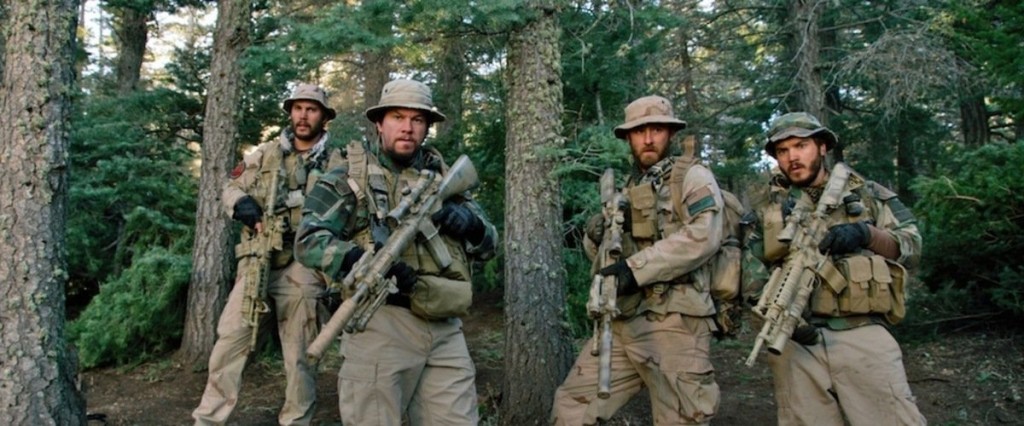Reviews
Movie review: “Lone Survivor”

Lone Survivor
Dir. Peter Berg
Release Date: Jan 10, 14
- 1
- 2
- 3
- 4
- 5
- 6
- 7
- 8
- 9
- 10
I find it bizarre that Lone Survivor nabbed a coveted A+ Cinemascore in theaters this weekend. This isn’t because the film is bad. It’s much, much better than many (including myself) expected it to be, the year’s first big surprise. Instead of marking quality, Cinemascore generally tells you if the film’s ad campaign correctly marketed the film to audiences. If the audience gets the movie that they expected to watch, they’re likely to be generous with their score. Movies like The Help or Frozen got perfect Cinemascores because the ad campaign and the movie lined up in perfect synchronicity; the crowd was, thus, pleased. Despite being a masterpiece, Drive got a C- because it looked like a racing film, instead of a brooding Euro thriller.
The case of Lone Survivor is strange because the film gives you something completely different than the film you signed on for, but in ways that are subtle and brilliant. The advertising for Lone Survivor has been pushing it as a patriotic, pro-war film in the vein of Act of Valor, which was a feature-length army recruitment commercial. Director Peter Berg sought Marcus Luttrell’s aid in making the film, the real-life survivor of the conflict Berg depicts, and he’s been upfront in the promotional materials. The message is that if you support the troops and the men who gave their lives for this country, you’ll go see the movie. It looks like war propaganda, as cut and dry as if it starred Bugs Bunny and Elmer Fudd.
But the movie itself is deeply divided about the costs of war and what it means to give your life for an idea. The violence in Lone Survivor doesn’t take place off-screen, as it might in a lesser film. The wounds inflicted are visceral and brutal. You feel every bullet that enters Mark Wahlberg’s body as his team struggles to survive a mission that went very, very wrong. The best films give you space for your own thoughts and reflection, and Lone Survivor is the first film I’ve ever seen in which I pondered what its like to be shot or to walk around with shrapnel inside you. At what point does your body accept the bullet? Does it ever feel normal, as if it’s natural to be walking around with metal inside you?
As a “Support the Troops” movie, the film dabbles in jingoism and the overt rhetoric of military brotherhood, but it’s a meditation on violence more than anything else. Lone Survivor is one of the bloodiest films I’ve seen in some time, Berg’s Passion of the Wahlberg, and the bloodshed seems to run counter to the film’s rah-rah spirit. These men aren’t Christ figures, dying for our sins; Marcus Luttrell and his brothers were normal guys who liked Anchorman and had girlfriends back home waiting for them. They were asked to give the ultimate sacrifice, but can that ever be worth it? Is there any solace here when you’ve watched all of your best friends murdered in front of you?
In answering those questions, Berg’s film is surprisingly humanistic. Lone Survivor sets up the conflict by making the Afghans into a uniform “Other,” indistinguishable and unintelligible. Peter Berg doesn’t always give us subtitles, so at first, we don’t get to know the other side of the story. They’re just bad guys without agency or history. However, Lone Survivor takes a necessary and surprising turn when the film becomes just as much about the lives of Afghans living on the ground, dealing with the Taliban every day. Every Afghani isn’t a terrorist. They are people who have family and friends, just like Marcus Luttrell and his men, ones who live with their own moral code. Instead of Act of Valor, the last third of the film reminded me of The Kite Runner, an act of bringing the world closer together.
There’s much to be said for the performances here — from underrated character actor Ben Foster to Taylor Kitsch, who is getting the comeback he deserves after the utter failure of John Carter. We’ve seen a number of war films that put a face on the American side of the conflict, making our pain feel real. How often do we see a movie that gets around to telling somebody else’s story? The most telling moment about the politics of Lone Survivor is the movie’s final shot. The film ends with a slideshow of the real-life fallen soldiers, with the last slide showing the man who saved Marcus Luttrell’s life. Lone Survivor might seem like it’s about Luttrell, but that’s a bait and switch. It’s not about the ones who leave but those who will have to stay and keep fighting. It’s about them.
Lone Survivor might not be a great movie, but it’s quietly revolutionary. It might not be the movie its core audience expected, but I hope they’re open to hearing the movie’s message anyway. It could change the world.